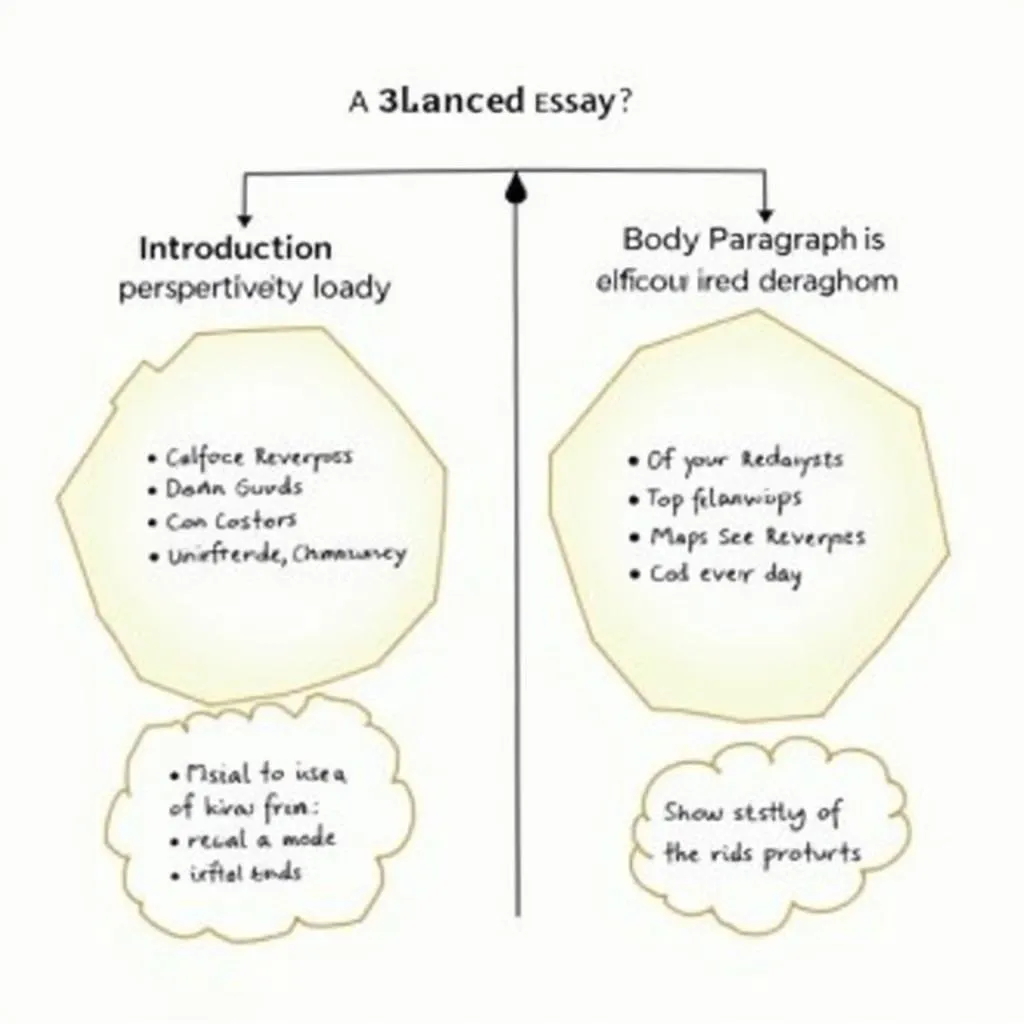Understanding the Importance of a Balanced Essay
Writing a balanced essay is crucial for success in IELTS Writing Task 2. A balanced essay demonstrates your ability to consider multiple perspectives on a given topic, showcasing your critical thinking skills and impartiality. This approach not only impresses the examiner but also helps you achieve a higher band score.
What is a Balanced Essay?
A balanced essay presents both sides of an argument or issue before reaching a conclusion. It involves discussing different viewpoints objectively, without showing bias towards any particular stance until the conclusion. This style of writing is particularly valuable in IELTS Task 2, where you’re often asked to discuss complex issues.

Key Elements of a Balanced Essay
1. Clear Introduction
Start your essay with a clear introduction that:
- Paraphrases the question
- Clearly states your position (if required)
- Outlines the main points you will discuss
Example:
“The debate over whether governments should invest in space exploration or focus on Earth’s problems is complex. This essay will examine both sides of the argument before reaching a conclusion.”
2. Balanced Body Paragraphs
Dedicate separate paragraphs to different viewpoints. Ensure each perspective receives equal attention and depth of analysis.
- Paragraph 1: Discuss one side of the argument
- Paragraph 2: Present the opposing view
Example structure for each body paragraph:
- Topic sentence
- Explanation
- Example or evidence
- Link back to the main argument
3. Objective Language
Use language that maintains neutrality. Avoid emotional or biased expressions.
Examples of objective language:
- “Proponents argue that…”
- “On the other hand, critics contend…”
- “Evidence suggests…”
4. Thoughtful Conclusion
Summarize the main points and state your final position based on the evidence presented.
Example:
“While both arguments have merit, the evidence suggests that a balanced approach, investing in space exploration while addressing Earth’s pressing issues, may be the most beneficial course of action.”
Strategies for Writing a Balanced Essay
1. Brainstorming
Before writing, brainstorm ideas for both sides of the argument. This ensures you have enough material to present a balanced view.
2. Use of Transition Words
Employ transition words to smoothly move between different viewpoints and paragraphs.
Examples:
- “However”
- “On the contrary”
- “Conversely”
- “Nevertheless”
3. Incorporate Counterarguments
Acknowledge potential counterarguments to demonstrate a comprehensive understanding of the topic.
Example:
“While proponents of space exploration argue it drives technological innovation, critics point out that these resources could be directly applied to solving immediate global challenges.”
Common Pitfalls to Avoid
- Bias: Avoid showing preference for one side until the conclusion.
- Lack of evidence: Support your points with specific examples or data.
- Repetition: Ensure each paragraph adds new information or perspective.
- Weak conclusion: Your conclusion should logically follow from the arguments presented.
Practice Exercise
To improve your skills in writing balanced essays, try this exercise:
- Choose a controversial topic (e.g., “Should social media be regulated by governments?”)
- Brainstorm arguments for both sides
- Write a balanced essay following the structure outlined above
- Review your essay, checking for balance, objectivity, and clear argumentation
Final Tips for IELTS Success
- Time management: Allocate enough time for planning, writing, and reviewing your essay.
- Word count: Aim for at least 250 words, but focus on quality over quantity.
- Practice regularly: Consistent practice will help you become more comfortable with this essay structure.
- Seek feedback: Have others review your essays to identify areas for improvement.
By mastering the art of writing balanced essays, you’ll be well-prepared to tackle any IELTS Writing Task 2 prompt with confidence and skill. Remember, the key is to present a fair and comprehensive analysis of the topic, demonstrating your ability to think critically and communicate effectively in English.